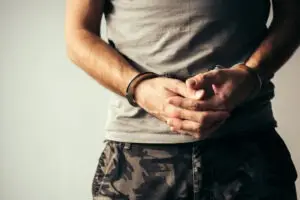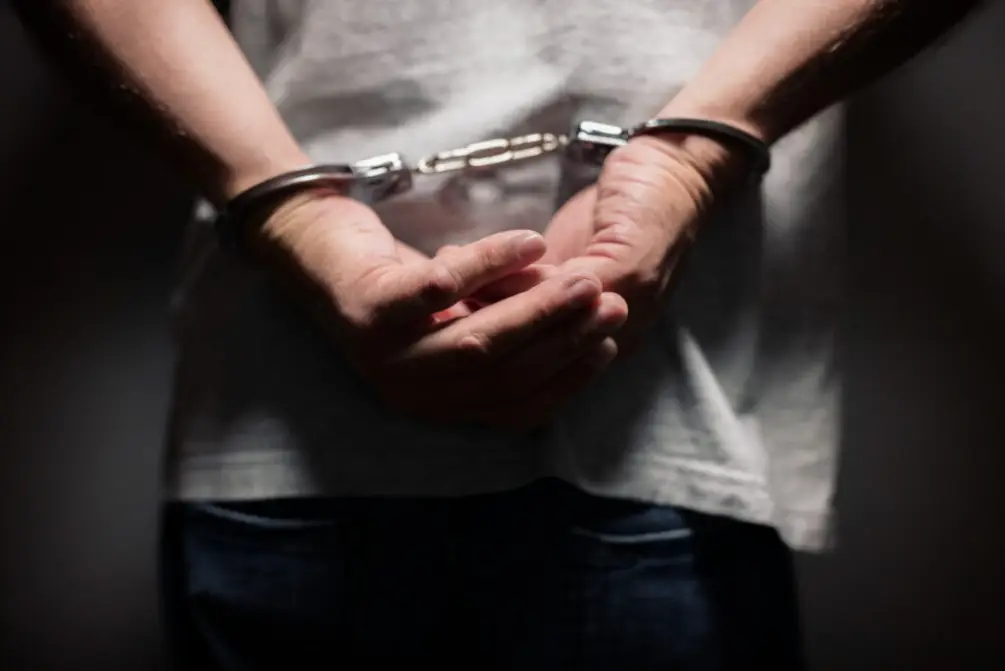
However, it is popular knowledge that innocent people are sometimes convicted of crimes. To protect the integrity of our judicial system, it is essential to recognize and comprehend the reasons for unlawful convictions. Two factors can make a conviction wrongful:
- The accused was truly innocent of the crimes for which they were convicted.
- The rights of the condemned person were infringed due to flaws in the judicial process.

Why Do Wrongful Convictions Happen?
The most common causes of wrongful convictions are:
Eyewitness Error
Mistaken identification by witnesses is a common cause of wrongful convictions. Eyewitness identification errors account for 28 percent of all exonerations in the United States. Studies in the social sciences have shown that human memories are flawed and easily altered.
People are substantially less likely to make a correct identification after experiencing a traumatic incident, such as a crime. Witnesses’ ability to recognize someone of a different race is considerably less reliable. Lineups and picture arrays also have the potential to be misleading, making it easier for a witness to identify the wrong suspect.
False Confessions
There are several possible explanations for why someone may falsely confess to a crime, even if they did not do it. False confessions can be obtained through several means, including physical intimidation and threats of violence from law enforcement. Standard questioning methods can sometimes be intimidating psychologically.
Police can, for instance, fabricate evidence by telling a suspect that forensic testing or some other form of definitive proof has already confirmed their guilt, even if this is not the case. The police may even try to coax a confession out of the suspect by making false promises about how much better things will be after the interview is over.
The fact is that many individuals cannot withstand this kind of pressure, especially if the questioning lasts for a long time or if they have been denied access to basic necessities like food, drink, and sleep. The risk of making a false confession is higher for young persons and those with intellectual limitations.
Witness Perjury
Typically, people who testify against a person do so because they stand to gain something in return. By testifying falsely against a fellow inmate, a prisoner facing criminal charges may be able to achieve a better plea bargain, have their charges dropped, receive preferential treatment while incarcerated, or even receive financial compensation.
Because of these advantages, lying is highly encouraged. Many innocent people go to prison because they were not provided enough information about the trustworthiness of the compensated witnesses who testified against them. This includes details like the specific rewards received, the witness’s history of cooperation in prior cases, and the witness’s criminal background.
Inaccurate Forensics
In contrast to how scientific theories are often tested, most forensic disciplines originated inside law enforcement and have not been subjected to the same level of scrutiny. Some areas of the forensic sciences, such as bitemark analysis and microscopic hair comparison, have been debunked as pseudoscience in the face of increased scrutiny.
Even in the most trustworthy fields, specialists tend to exaggerate their findings and downplay the limits or mistake rate of a certain forensic approach. Last but not least, forensic professionals are human too, and they can make mistakes like the rest of us by accidentally combining samples or corrupting evidence. There have been instances where forensic analysts have lied about their findings, concealed incriminating evidence, or declared findings when no testing had been performed.
Prosecutorial Misconduct
There are many opportunities for official wrongdoing in criminal proceedings due to the complex nature of the process. When police knowingly utilize suggestive identification procedures, pressure a witness into implicating a suspect, manufacture physical evidence, or use incorrect interrogation methods to gain a confession, they have committed misconduct during the investigative stage. When prosecutors present perjured testimony at trial or withhold supporting evidence they taint the entire procedure.
To apply for free, call (877) 735-0016
Determining Liability for Wrongful Convictions
Those in the justice system who aid in unjust convictions rarely suffer professional penalties, let alone criminal prosecution. Although a settlement may be reached for some wrongly convicted individuals through legal action against the government (and therefore the state may be held financially liable), the conditions of such settlements nearly always include that the government does not accept liability.
Therefore, most people in positions of power and authority (such as law enforcement officials, prosecutors, defense lawyers, or trial magistrates) who are responsible for unjust convictions have no real way of being held accountable. Without change, this culture of impunity will keep bad actors and careless judges from being held accountable for their roles in unjust convictions.
What to Do if You’re Wrongfully Convicted
You should gather as much evidence as you can to show your innocence in a wrongful conviction. The following are some strategies you might use to challenge your conviction and establish your innocence:
Employ a Forensics Expert
Whether or not DNA evidence is included in your case, you should still consult with a private forensic expert to assess the prosecution’s case. This may reveal inconsistencies in the investigation and support your case for innocence.
Never Give out too Much Information
Don’t give out any personal information and avoid talking to anyone who might not have your best interests in mind. Keep your cool and say only what is necessary to achieve the answers you need while doing so.
Do Not Lose Any Data
When searching for proof, it’s important to keep all communication records. You need evidence on hand to illustrate the truth if somebody is deliberately trying to block your efforts or reject what they have stated.
Gather Further Testimonies from Witnesses
There may be inconsistencies or false information in the statements or information provided by witnesses, so it’s important to go through their testimonies and any testimony from informants as well.
Consult With a Defense Attorney
You should have someone on your side who will work hard to assist you gather the evidence necessary to prove your innocence if you were wrongfully convicted.
Appealing a Wrongful Conviction
Direct appeals from convictions are typically the first line of defense for those who think they have been wrongfully accused or convicted. Nonetheless, in many instances of exoneration, the proof or evidence that finally led to the reversal of a false conviction was not found until months or even years after. The time limit for filing a direct appeal from a ruling is often a couple of days.
Need Risk-Free Lawsuit Funding? Contact Us Today!
If you need money right now to get your life back after a wrongful conviction and before your case settles, call us at High Rise Financial today. You can contact us on (866) 407-6404. Our seasoned team will be happy to meet with you and explore your available lawsuit loan options.
Call or text (877) 735-0016 or fill out our form to apply today for free.

